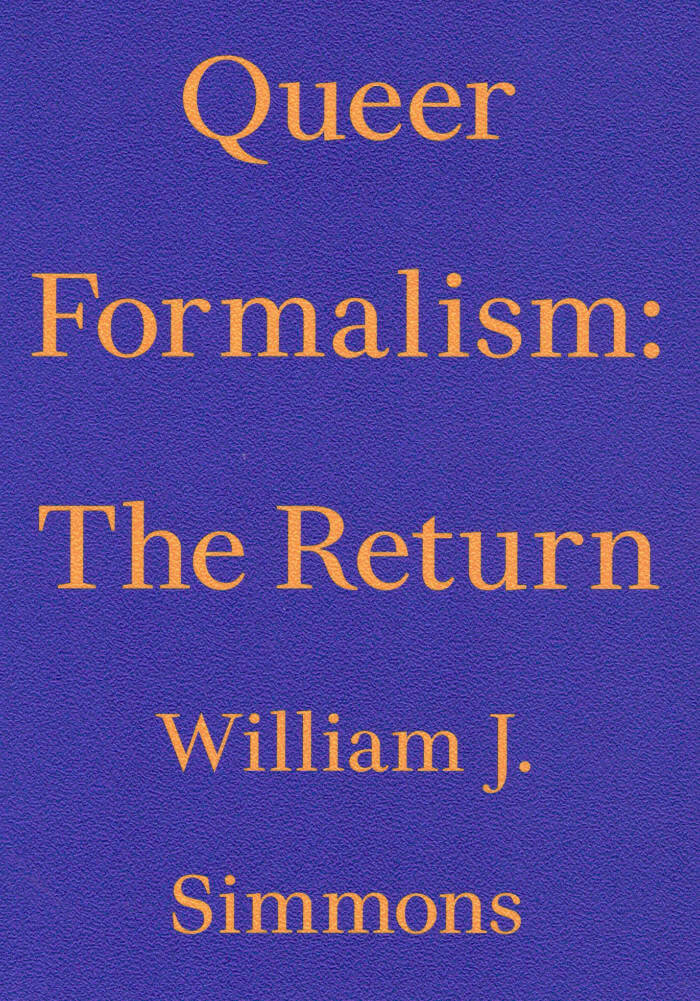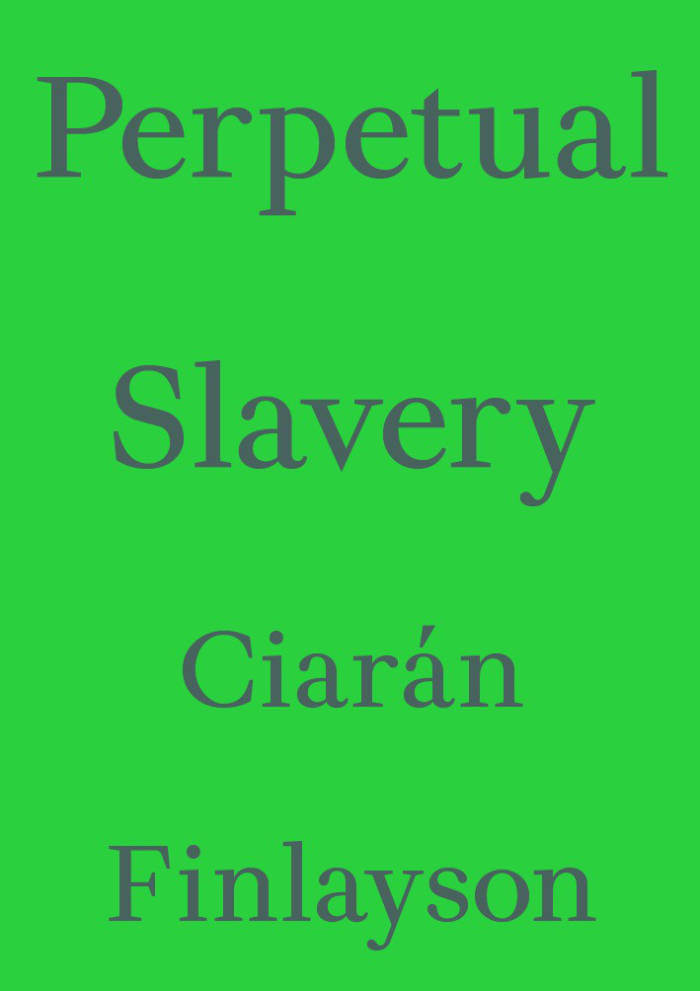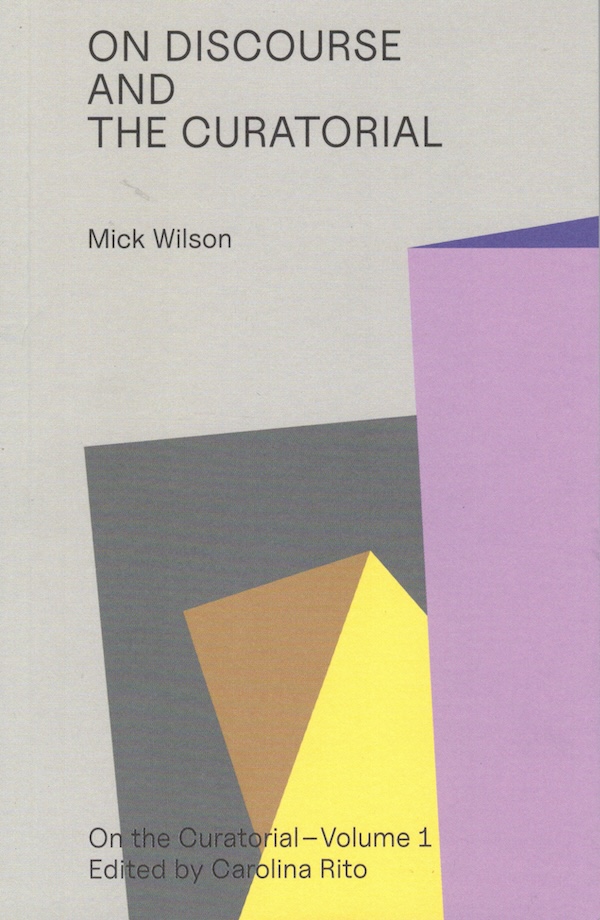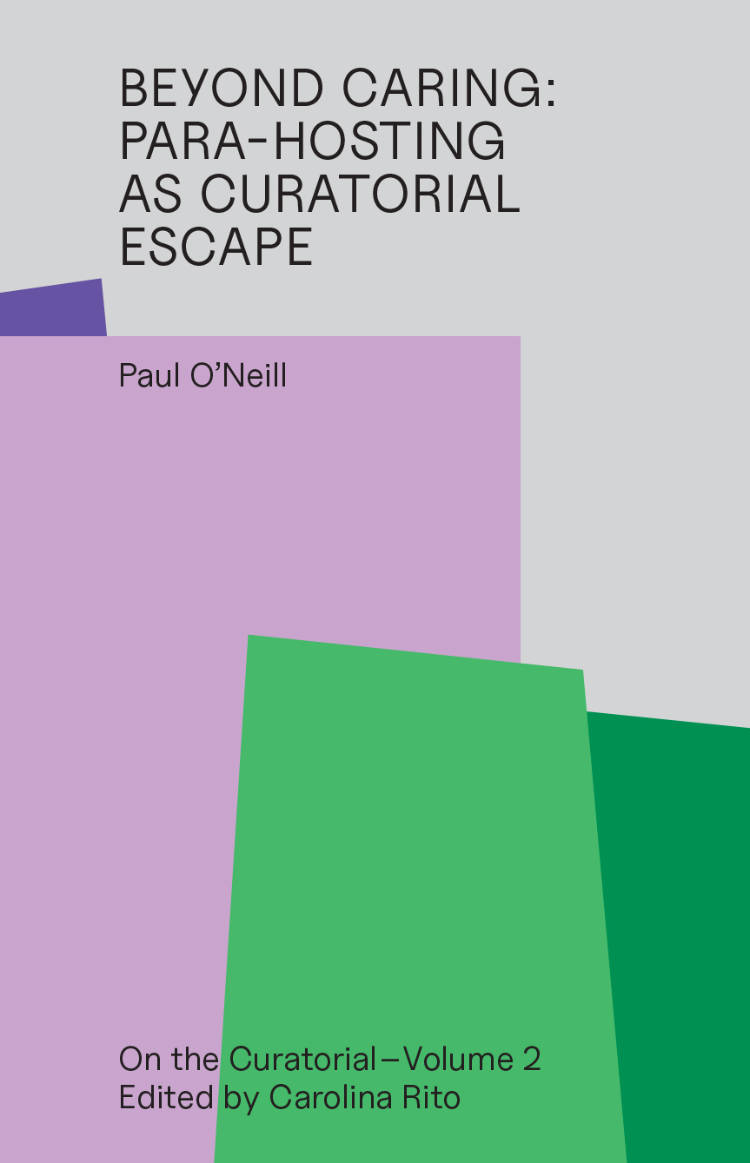"Para- hosting" as a cooperative methodology for arts institutions.
What can established art institutions learn from small-scale organizations' approaches to invitation, hosting, and publicness? In Beyond Caring: Para-hosting as Curatorial Escape, Paul O'Neill explores how new forms of invitation can reimagine host–guest relations and open escape routes from fixed institutional roles. Moving between speculation, critique, and proposition, the essay introduces "para- hosting" as a cooperative methodology of generosity and self-organization without absorption. For O'Neill, para-hosting is a form of escape that enables transformative possibilities beyond existing power structures within institutions and otherwise.
In the early 2010s, the idea of "the curatorial" arose after a short but intense debate about what it means to curate exhibitions. The books in the On the Curatorial series look at the consequences of that discussion today and ask: Do we need different curatorial tools to engage with deepening social, political, and ecological crises? The series allows earlier participants in the debate to reflect on how their concepts and practices have changed, while younger generations of curators explore the ongoing need for new conceptual approaches to curation.
The series is edited by Carolina Rito, who is professor of creative practice research at the Research Centre for Arts, Memory, and Communities, Coventry University, UK, and executive editor of Contemporary Journal.
Paul O'Neill is an Irish curator, artist, writer and educator. He is the Artistic Director of PUBLICS, a curatorial agency with a dedicated library, event space and reading room in Vallila Helsinki, since 2017.
Edited by Carolina Rito.
Contribution by Gerrie van Noord.








